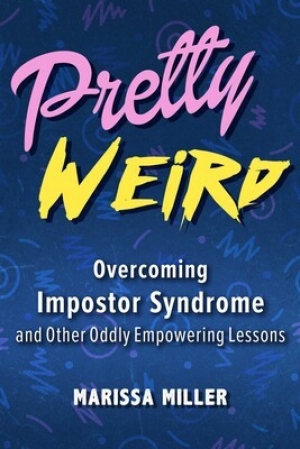Miller may be more proactive towards her mental health now, but that wasn’t always the case. Even after she was accepted into Concordia’s Creative Writing and Journalism programs for a double major, she was often dogged by doubt.
“I didn’t think I belonged at first. I was interested in women’s media, health, nutrition and fitness,” she says, while her classmates’ focus tended toward more serious subjects like geopolitics and natural disasters. “I felt like an impostor in the truest sense, because the journalism I wanted to do wouldn’t serve anyone in the way that I thought my peers’ journalism would.”
Yet Miller now credits Concordia for where she is today — confident in her success and successful at feeling confident.
Her Concordia studies structured how she approaches her craft, and her professors taught her to find strength in what she perceived as weakness. Journalism professor [and now department chair] David Secko’s teachings in specialist reporting taught her that lifestyle subject matter was a worthwhile endeavour. The late Linda Kay, Pulitzer Prize-winning journalist and professor, helped Miller feel a journalism career was attainable — and invited Miller back as a guest speaker after graduation.
“I didn’t always draw a link from my work to my studies, but now, I credit Concordia with the majority of my success,” she says. “My education gave me the drive to go beyond being a nine-to-five staff writer, and the book falls into how I’m always striving to be better and do better.”
Rising to her own challenges
“I’m the queen of changing gears,” Miller says. “I like having several open tabs in my brain at once because it keeps me from burning out over one topic alone.”
While journalism taught hands-on strategies to write stories and pay the rent, creative writing prepared her for longer-form pieces — like, say, a debut book. Miller later complemented her studies in writing with a personal trainer certification from the American Council on Exercise and a certificate in plant-based nutrition from Cornell University’s T. Colin Campbell Center for Nutrition Studies.
To writing students experiencing impostor syndrome, she offers this advice: “Feelings of impostor syndrome are normal and a natural response to holding this career in high regard. Just knowing you’re not alone can help eradicate those feelings.”


 “My current self is still sad, but my younger self was sadder. I just didn’t always have the logistical resources to seek help,” says Marissa Miller, an award-winning Montreal writer and editor.
“My current self is still sad, but my younger self was sadder. I just didn’t always have the logistical resources to seek help,” says Marissa Miller, an award-winning Montreal writer and editor.
 Miller's book Pretty Weird: Overcoming Impostor Syndrome and Other Oddly Empowering Lessons (Skyhorse, 2021)
Miller's book Pretty Weird: Overcoming Impostor Syndrome and Other Oddly Empowering Lessons (Skyhorse, 2021)


